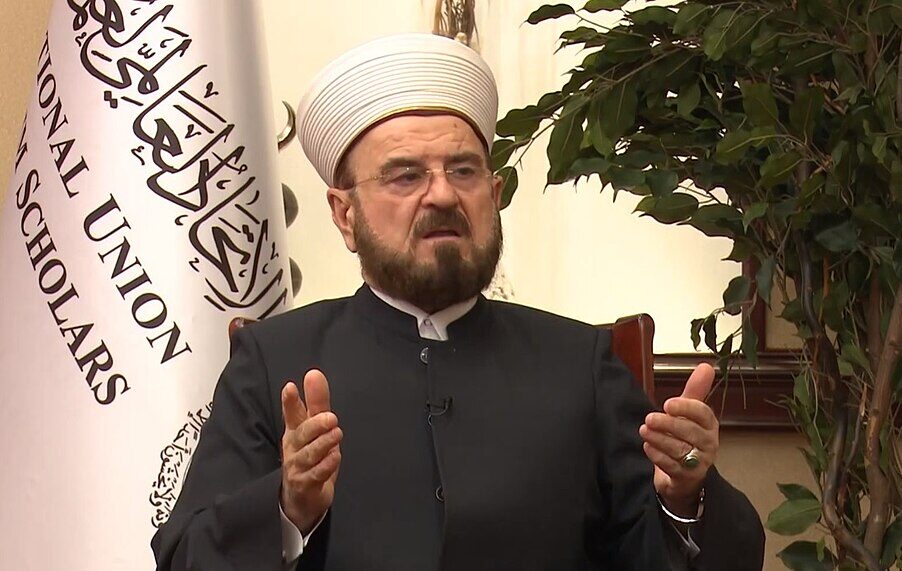In March 2025, the International Union of Muslim Scholars (IUMS), based in Qatar, issued a fatwa calling for “jihad” against Israel, citing the ongoing conflict in Gaza and alleging a “genocide” by Israeli forces. The non-binding religious decree urged Muslims and Muslim-majority countries to engage in military, economic, and political actions against Israel, including reviewing peace treaties and imposing a blockade. While the fatwa sparked significant controversy and was rejected by figures like Egypt’s Grand Mufti, several parties and platforms expressed support for it.
Key Supporters of the 2025 Fatwa Against Israel
International Union of Muslim Scholars (IUMS)
The IUMS, the issuer of the fatwa, is a Qatar-based organization founded in 2004 by Sheikh Yusuf Al-Qaradaghi, a prominent Muslim Brotherhood ideologue. The fatwa, released in March 2025, by the IUMS’s Ijtihad and Fatwa Committee, declared “armed jihad” an obligation for all capable Muslims and called for an “Islamic military alliance” against Israel. The IUMS’s statement was backed by 14 prominent scholars, including Ali al-Qaradaghi, its secretary general, who emphasized a comprehensive siege on Israel.
Indonesian Council of Ulema (MUI)
The Indonesian Council of Ulema (Majelis Ulama Indonesia, or MUI), a leading Islamic authority in Indonesia, publicly supported the IUMS fatwa. On April 8, 2025, the MUI’s Chairperson for Foreign Relations and International Cooperation issued a statement endorsing the call for jihad against Israel. This support was widely shared on social media platforms, with posts highlighting the MUI’s alignment with the IUMS’s decree. Indonesia, as the world’s largest Muslim-majority country, adds significant weight to the fatwa’s influence.
Pakistani Scholars
Prominent Pakistani religious figures, including Mufti Taqi Usmani, a highly influential Sunni scholar, endorsed the fatwa. Their support was voiced during the National Palestine Conference in Islamabad, where scholars urged Muslims to prioritize Palestinian resistance over voluntary religious practices like Umrah. Pakistan’s backing reflects its historical sympathy for the Palestinian cause.
Media Outlets
Outlets like Middle East Eye, Al Jazeera, and The News International (Pakistan) covered the fatwa favorably, often quoting IUMS and MUI statements.
Silence from Other Regions
Major Sunni authorities in Saudi Arabia, Jordan, and the UAE, which maintain diplomatic or economic ties with Israel, have not expressed support. Saudi Arabia’s Council of Senior Scholars and other Gulf-based bodies have been notably silent, possibly due to geopolitical alignments and the fatwa’s Muslim Brotherhood ties.
Conclusion
The 2025 fatwa against Israel, issued by the IUMS, has found support among key entities like the Indonesian Council of Ulema, Pakistani scholars such as Mufti Taqi Usmani, and implicitly from Hamas-aligned factions. Social media platforms and regional outlets such as Middle East Eye and Al Jazeera have further amplified its message, reflecting sympathy for the Palestinian cause amid the Gaza conflict. However, the fatwa’s polarizing nature and rejection by figures like Egypt’s Grand Mufti highlight the challenges of translating religious decrees into unified action.
Cover Photo: Dorar TV, CC BY 3.0 https://creativecommons.org/licenses/by/3.0, via Wikimedia Commons




